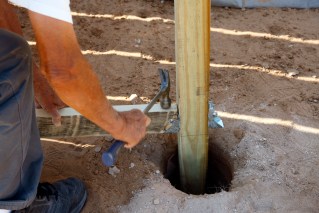ACCC: NBN technology underperforming


The ACCC said NBN speeds still need some improvement. Photo: Getty
Internet speeds achieved under the National Broadband Network need “some improvement”, the consumer watchdog has found.
Fixed-line households were generally providing a good service, the ACCC said in its Measuring Broadband Australia Report.
But households with the Coalition’s preferred technology continued to underperform in the most recent 30-day testing period.
“Underperforming services, which represent about 13 per cent of all tested connections and are mostly fibre to the node (FTTN), continued to significantly impact the overall download speed results,” the report, released on Wednesday, said.
Underperforming services never came close to delivering promised maximum speeds, according to the ACCC.
The report said FTTN delivered worse speeds either because of distance between the home and the node, or issues with internal wiring within the home.
“We encourage customers who aren’t getting the maximum speeds to contact their internet service provider to ask whether the problem can be fixed or about moving onto a cheaper plan,” ACCC Chair Rod Sims said.
Speed differences between the technologies was broken down for the first time.
Fibre to the premises (FTTP) and hybrid fibre coaxial (HFC) networks delivered about 86 to 87 per cent of maximum speeds in the busiest hours.
FTTN networks reached 79 per cent of maximum speeds in congested periods.
“However, when underperforming services are removed, the results are comparable for all technologies, at almost 88 per cent,” the report said.
“This demonstrates that with further work, many more FTTN customers could expect to see similar speeds on their current plans as customers on other NBN technologies.”

The ACCC noted that when underperforming services were removed, the FTTN results are comparable for all technologies. Photo: ACCC
The ACCC defines a service as underperforming if it rarely, if ever, records a download speed that’s at least 75 per cent of the plan speed.
There were 7.4 per cent of services that failed to reach even 50 per cent of the plan speed.
All the NBN broadband technologies were delivering faster broadband than ADSL.
The report considered Dodo, iPrimus and Exetel for the first time.
Most retail service providers remained steady in the busy evening hours between 7pm and 11pm, but TPG and iiNet experienced a decline in download speed performance compared to the previous quarter.
Speeds during congested hours varied from 71.8 per cent of maximum plan speeds, down to just 48.3 per cent.
The ACCC said the drop in speeds could be the result of retailers migrating customers to new wholesale NBN products that launched in October.
“It is good to see that providers have generally managed the transition to NBN Co’s new wholesale products without too much impact on customers,” Mr Sims said.
“We will await the next round of speed testing results with interest, to see if providers have improved their performance.”
The Coalition government argued its FTTN model could be rolled out cheaper and faster than Labor’s fibre to the premises (FTTP) technology.








